Top 10 Irish Culture, Customs and Etiquette
Should you remove your shoes when visiting friends? Should you greet those on elevators with a smile? When thinking about the dos and don'ts in your own ... read more...nation, these questions might not seem like the most obvious ones, but things that you might not even consider at home can have a major impact abroad. Here is a list of Irish Culture, Customs and Etiquette.
-
People frequently use the words "please" and "thank you." For instance, the majority of people will thank the bus driver upon getting off. Irish people typically wait in line before being served. It's customary to shake hands with persons you just met and with them again as you leave a social gathering.
It is considered polite to give other drivers a chance to pass when driving in rural areas. To do this, lift your hand or finger from the steering wheel. The Irish typically say "bye" more than once before hanging up the phone while finishing a phone call. Saying "bye" just once and hanging up right away to finish the call is considered disrespectful.
It is impolite to wear your hat inside a house, a church, or a bar. It is usually acceptable to show up 15 minutes later than the scheduled time because Irish people are often rather flexible with their time. That being said, avoid being late if it puts your Irish counterpart in a compromising situation.

https://www.state.gov 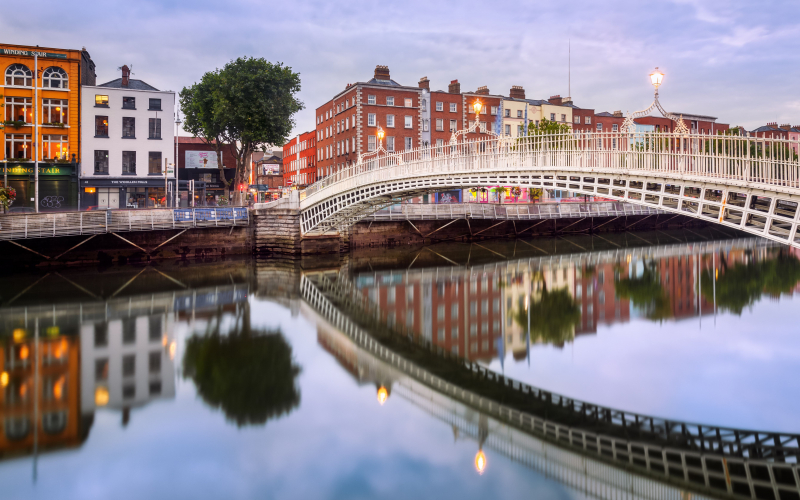
https://www.tripsavvy.com/ -
All ages enjoy the common social activity of going to pubs. It serves as a frequent gathering spot for friends and family. A lot of people congregate at pubs to have conversations. Occasionally, this occurs when you cross paths with a buddy or acquaintance.
Pubs are open to patrons who aren't yet of legal drinking age (18 years old). As a result, it is not uncommon to see kids in pubs, particularly in rural areas where there are music sessions. In the evening, folks will dress a little more formally when heading to the pub. Men will, for instance, choose dress shoes over sneakers.
In a pub with friends, a procedure called "rounds" is employed. Everyone in the group is supposed to take turns offering to buy a round of drinks. People frequently remember if you skip a round. It might lead to a negative assessment of your character. Those who don't offer to buy a round could come out as stingy or nasty.
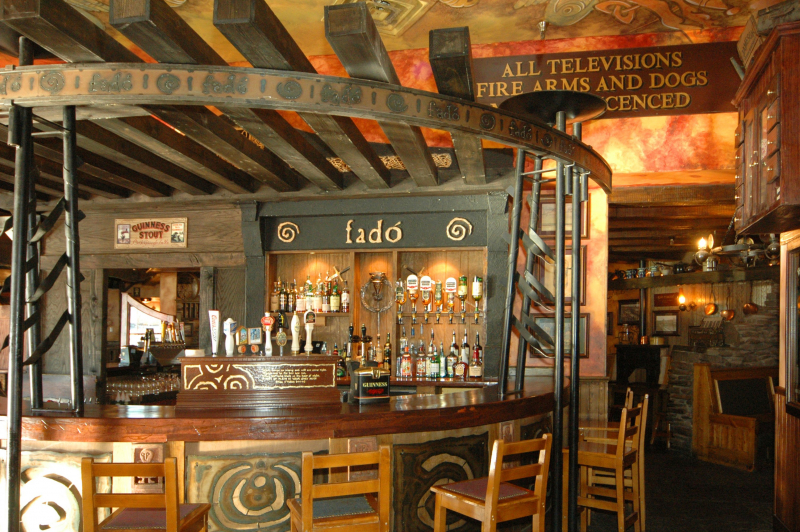
https://www.prweb.com/ 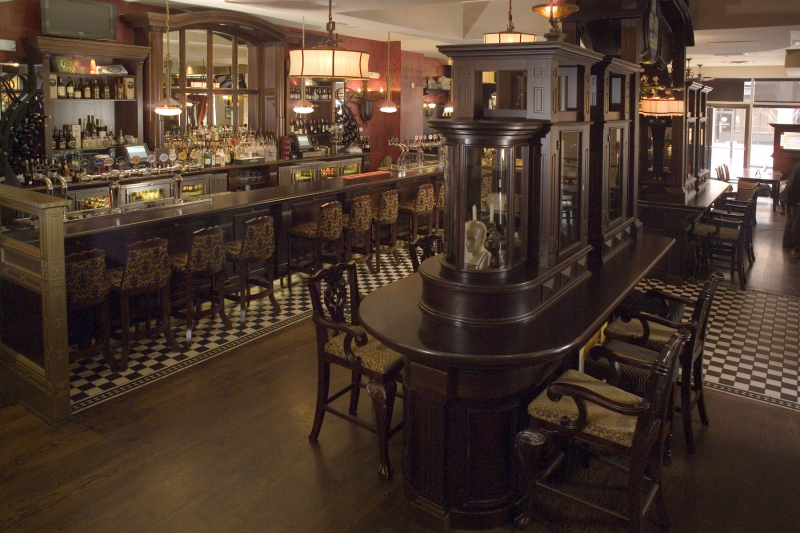
https://www.prweb.com -
'Calling by' is another word for visiting. Normally, one would get permission before visiting someone. Holidays are when individuals tend to visit each other the most, particularly between Christmas and New Year's. Try to arrive on time if you are invited to a residence in Ireland. Inform your host if you'll be running late. Offer to help the host clean up after the dinner if you are over for a meal.
Bring a package of fine chocolates and a good bottle of wine for the host if you are asked to an Irish home. If you are late, the dinner may have already been prepared. After a meal, offer to assist with the cleanup. Table etiquette is generally informal and lax.
The procedure is stiffer the more formal the event. Watch what others are doing while in doubt. Continental table manners dictate that the fork should be held in the left hand when eating and the knife in the right. While keeping your hands out and not in your lap, avoid resting your elbows on the table.

http://www.businessinsider.com/ 
http://www.leisureopportunities.co.uk/ -
It is safe to conclude that the Irish have less strict standards for proper eating behavior and reserve their annoyance for questions of religion and when tourists mistake their nation for England. Diners should refrain from smoking at the table, putting their elbows on the table, and making obscene hand gestures with their forks and knives.
Dinner, which is served in the evening, is the primary meal. A family will often eat dinner together when it's practicable. Table manners are very relaxed and casual. There are a few etiquette rules to remember, though. The supper table should not be touched with your elbows.
At the dinner table, loud noises like slurping are typically not permitted. It is customary to consume everything on your platter. Most Irish people will shout "sláinte" (pronounced "slan-cha") to express their cheers. Protocol for toasts at meals. When beer is consumed, a toast is almost always made. Allow your Irish host to make the first toast; after that, you can make your own. Slainte is the most typical toast type! meaning: good health or cheers!
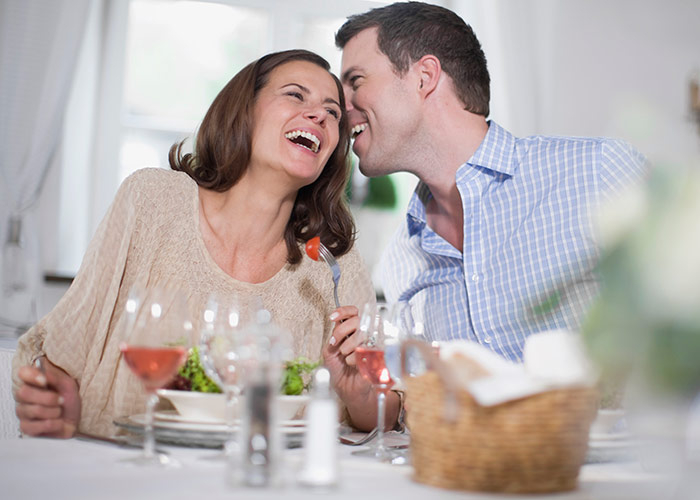
http://evoke.ie/life-style 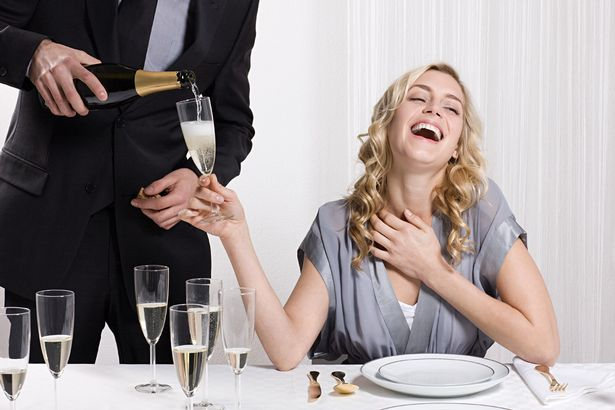
https://www.irishmirror.ie/ -
Speaking has become an art form in Ireland. Their propensity for being poetic and lyrical has produced a verbal eloquence. They value a carefully crafted message and communicate information through stories and anecdotes. In Ireland, your speech conveys a lot about you.
The Irish value modesty and can be wary of those who are outspoken and have a tendency to boast. They detest any form of superiority complex. Therefore, it is preferable to casually mention your professional accomplishments in brief fragments during numerous talks rather than starting a lengthy, self-centered outline of your achievements.
Depending on who is being spoken to, communication styles can range from direct to indirect. There is a general societal trend for people to prioritize politeness over telling the truth. This implies that you might not always encounter resistance. Whenever someone speaks to you, pay attentive attention. Beyond what is explicitly spoken, a lot may be implied.
For instance, if a person is silent before nodding, they most likely declined. They might also respond in a non-committal manner. This might be because there are no words for "yes" or "no" in the Gaelic language. It is more common to communicate subtly or indirectly than to say something that might be divisive. In general, they like to avoid conflict and dislike confrontation, which they try to do by being amusing and being kind.
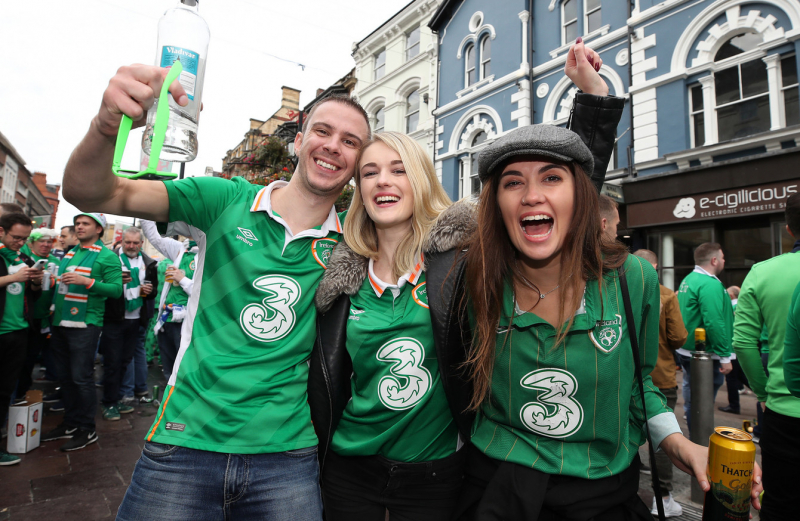
https://www.thejournal.ie/ 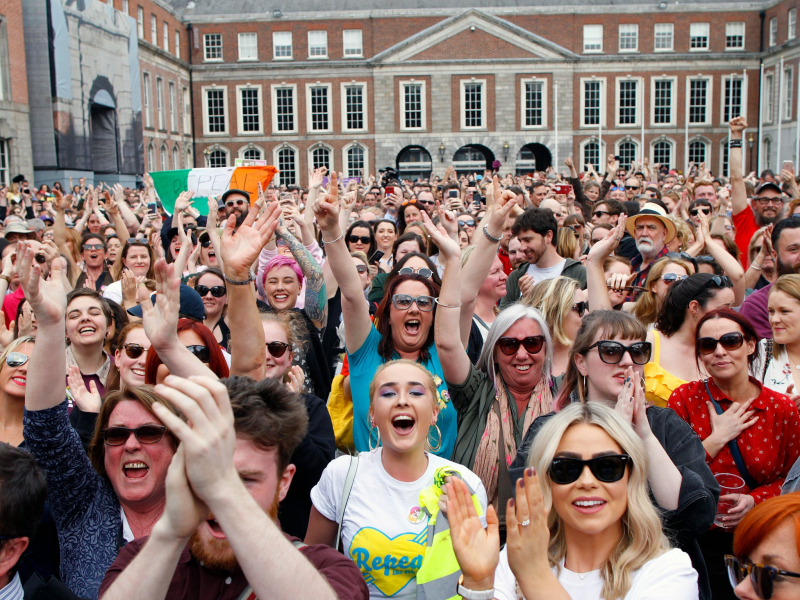
https://www.ebangla.in/ -
If a friend or relative invites you to their home while you are visiting Ireland, you should bring a small gift to show your appreciation. In Ireland, sending flowers, a bottle of Cabernet, or some chocolate roses is appropriate.
It is customary to bring a little gift (such as flowers, wine, or chocolates) when welcomed to a friend's or relative's home as a sign of appreciation. Typically, gifts are given and received at Christmas and birthdays. The sentiment behind a present is valued more highly than its monetary value. If you're presenting flowers, avoid giving lilies because they're utilized for religious celebrations. As white flowers are typically given during funerals, avoid giving them. Gifts are typically unwrapped right away.

https://www.eringrove.com/ 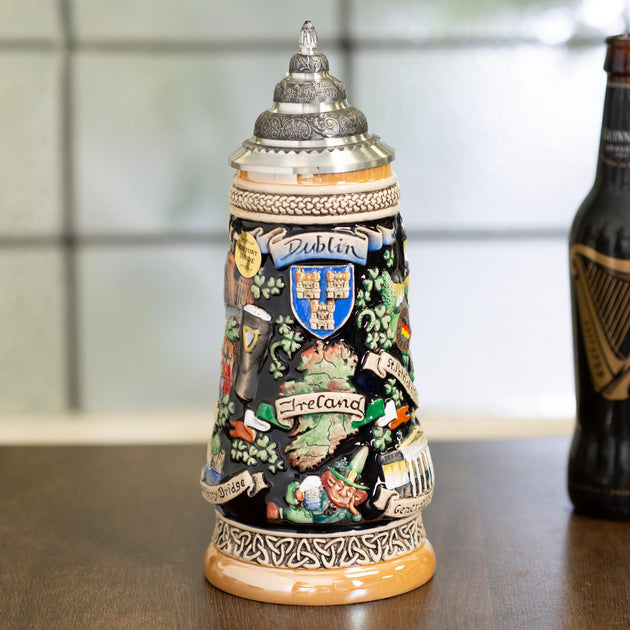
https://www.creativeirishgifts.com/ -
The Irish are known for possessing "the craic," which is pronounced "crack," meaning wit and humor. They are not just fast with jokes but also make eloquent and astute speakers. They take great delight in their ability to discover humor, which is frequently sardonic or self-deprecating.
With those they are close to, the Irish frequently insult and ridicule one another (a practice known as "slagging"). It's crucial to accept teasing in stride and avoid taking it personally. They have a long tradition of using storytelling to transmit knowledge across generations (poems and songs also served the same purpose).
Although the Irish are known for their positive sense of humor, some tourists who are less familiar with the culture may find it challenging to grasp. Though most people don't like even slight racism, jokes on practically any subject are permitted.
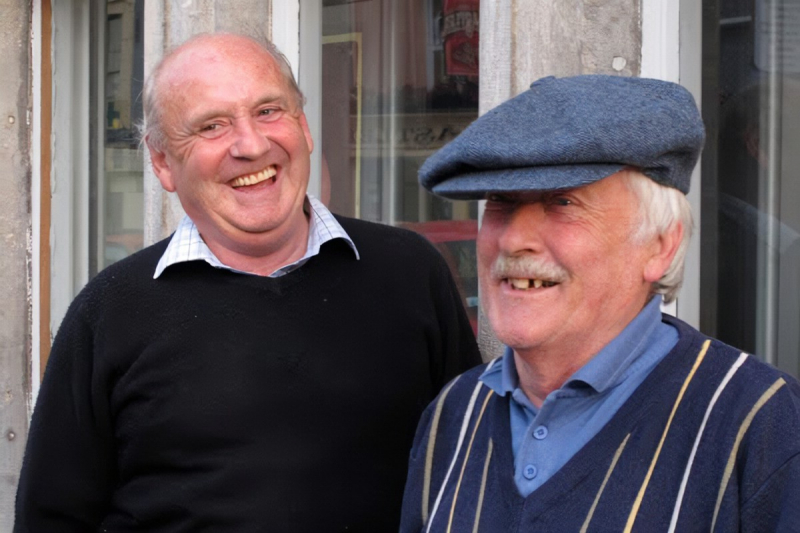
http://spiritofirelandseawardworkshopjourney.blogspot.com/ 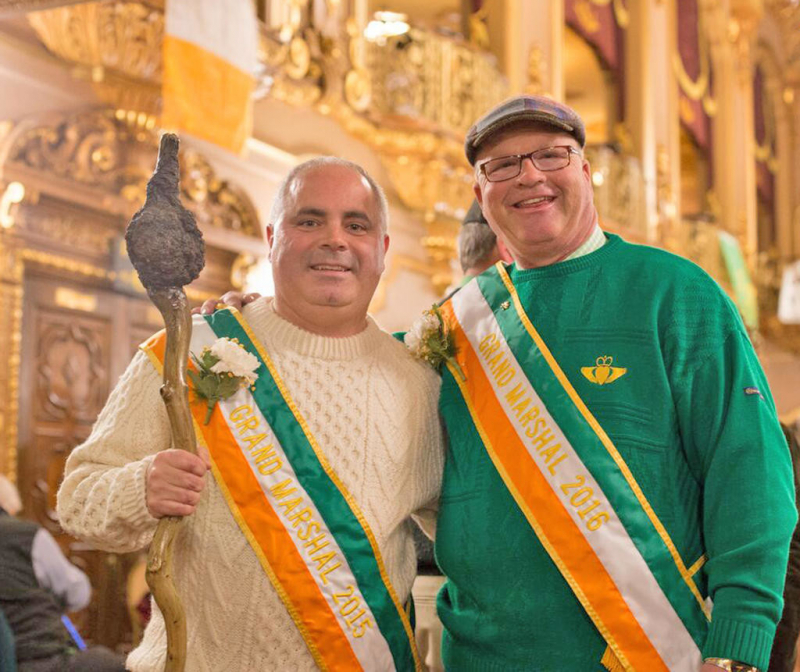
https://romesentinel.com/ -
A handshake plus a hello or salutation suited for the time of day constitute the fundamental greeting. Maintaining eye contact while meeting someone shows that you trust them. Shaking hands with older children is customary. Warm and cordial greetings frequently lead to talks.
Irish business people are typically friendlier and less formal than their counterparts in many other European nations. Speak to everyone in the room and extend your hand. Handshakes ought to be strong and assured. At the beginning and conclusion of meetings, shake hands. Don't forget to smile! Irish people are typically quite informal and rapidly use their first names. After the initial introductions, business cards are traded casually. You shouldn't be irritated if you don't receive a business card in exchange because many businesspeople don't have one.
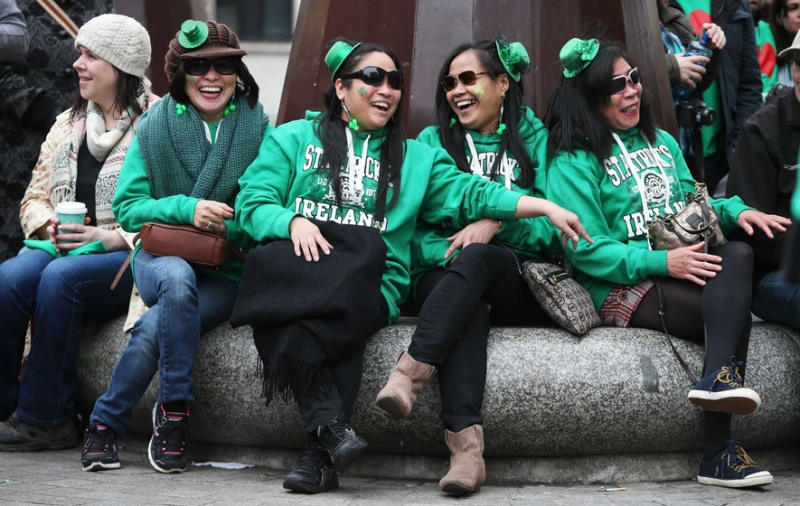
https://www.irishnews.com/ 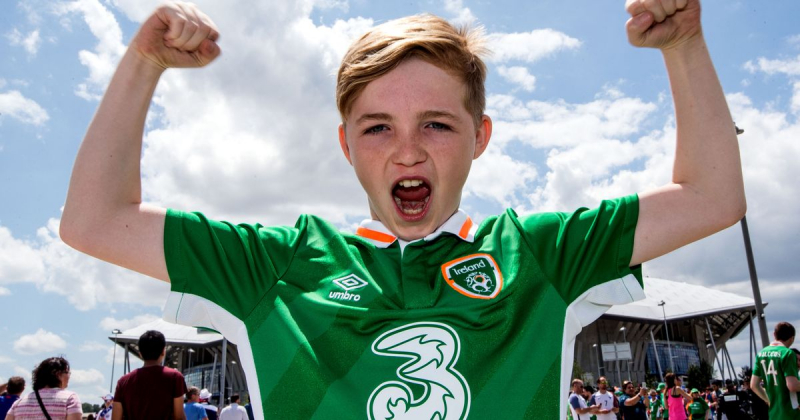
https://www.irishmirror.ie/ -
Christianity is the most common religion in the Republic of Ireland, and the Catholic Church is the largest denomination. The Irish Constitution guarantees religious freedom and forbids the state from endorsing any one faith.
The percentage of Catholics in the population was 78.3% (3.5 million) in the 2016 census, which is 209,220 fewer than it was in 2010, when it was 88%. "No religion" was the next largest category after Catholics. According to the census, 10% of the population did not practice any religion. This was an increase of 73.6% over 2011.
Only 40% of Catholics will attend services in 2022. The Church of Ireland (Anglican), the second-largest Christian denomination, saw a fall in membership during the most of the 20th century, but more recently, as have other smaller Christian churches, it has seen an increase. The Methodist Church in Ireland is the second-largest Protestant denomination in Ireland, after the Presbyterian Church. Orthodox Christianity is the fastest-growing religion in Ireland, with Hinduism and Islam also seeing considerable growth in recent years, primarily as a result of immigration.
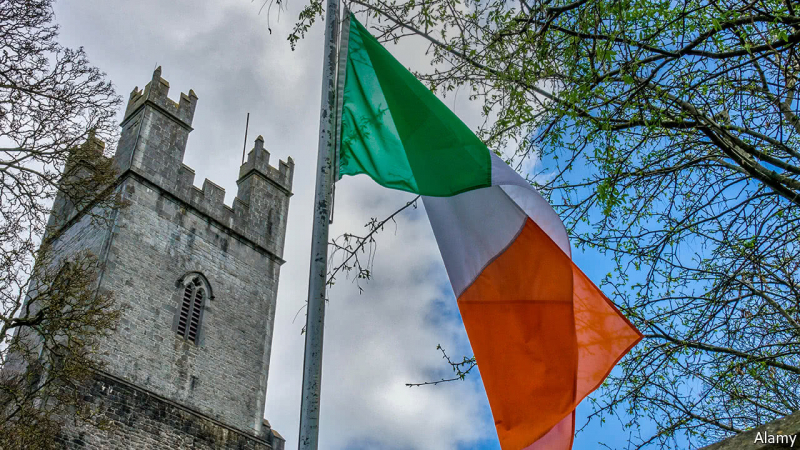
http://www.economist.com/ 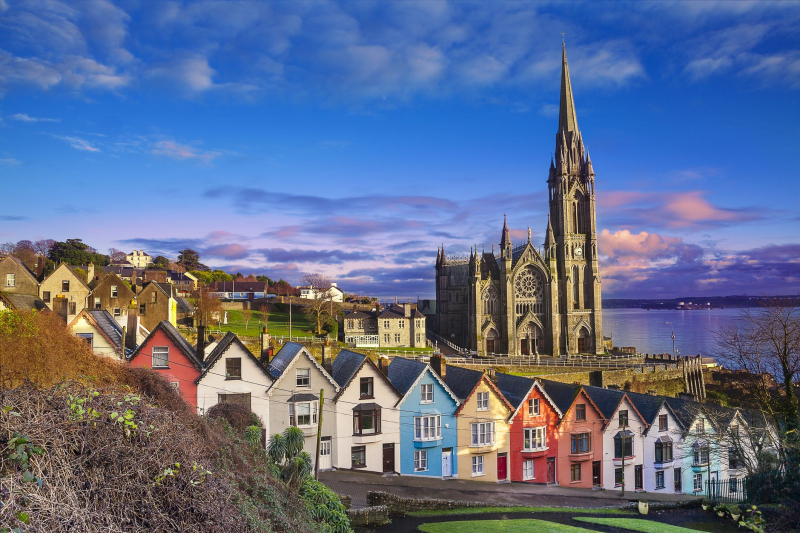
https://www.learnreligions.com/ -
The language, literature, music, artwork, folklore, food, and sports that are specific to Ireland and the Irish people are all part of the country's culture. Irish culture has largely been Gaelic for most of its history that has been written down (see Gaelic Ireland). Scottish, English, and Anglo-Norman cultures have also affected it.
The Tudor English culture emerged during the 16th and 17th century invasion and colonization of Ireland, which followed the Anglo-Norman invasion of Ireland in the 12th century. Scottish features were also introduced during the Plantation of Ulster, mainly in Northern Ireland.
In modern society, there are frequently observable cultural distinctions between people of Catholic and Protestant origin (particularly Ulster Protestant), as well as between travelers and the population of settlers. Irish culture has a global presence thanks to widespread emigration from Ireland, and holidays like Saint Patrick's Day and Halloween are observed everywhere.
The Irish diaspora has to some extent adopted and changed Irish culture, which has in turn had an impact on the homeland. Even though Irish culture has many distinctive qualities, it also has many characteristics in common with those of Britain, other English-speaking nations, other primarily Catholic European states, and the other Celtic countries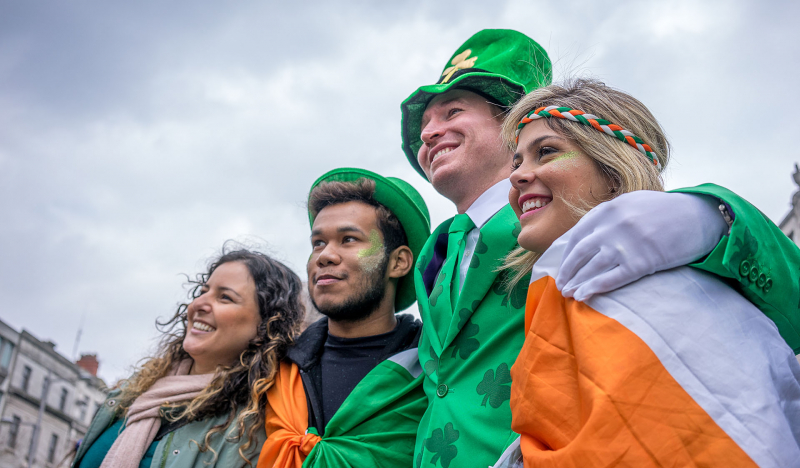
https://www.travelsignposts.com 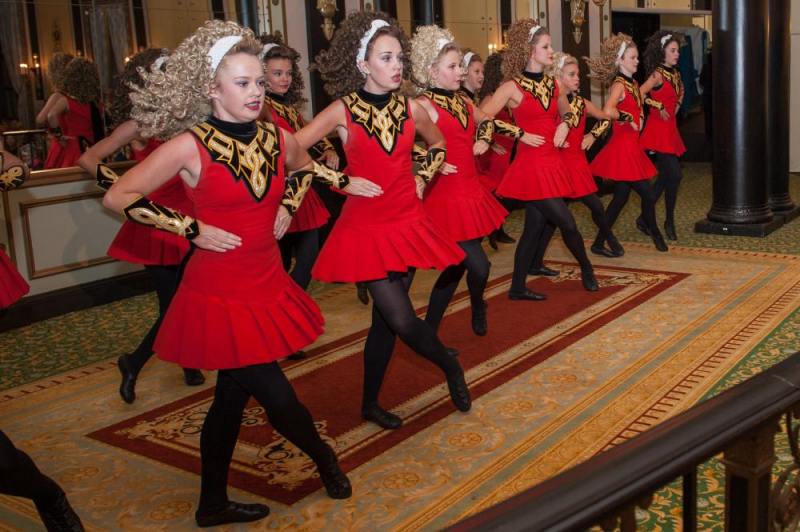
http://law-arts.org































